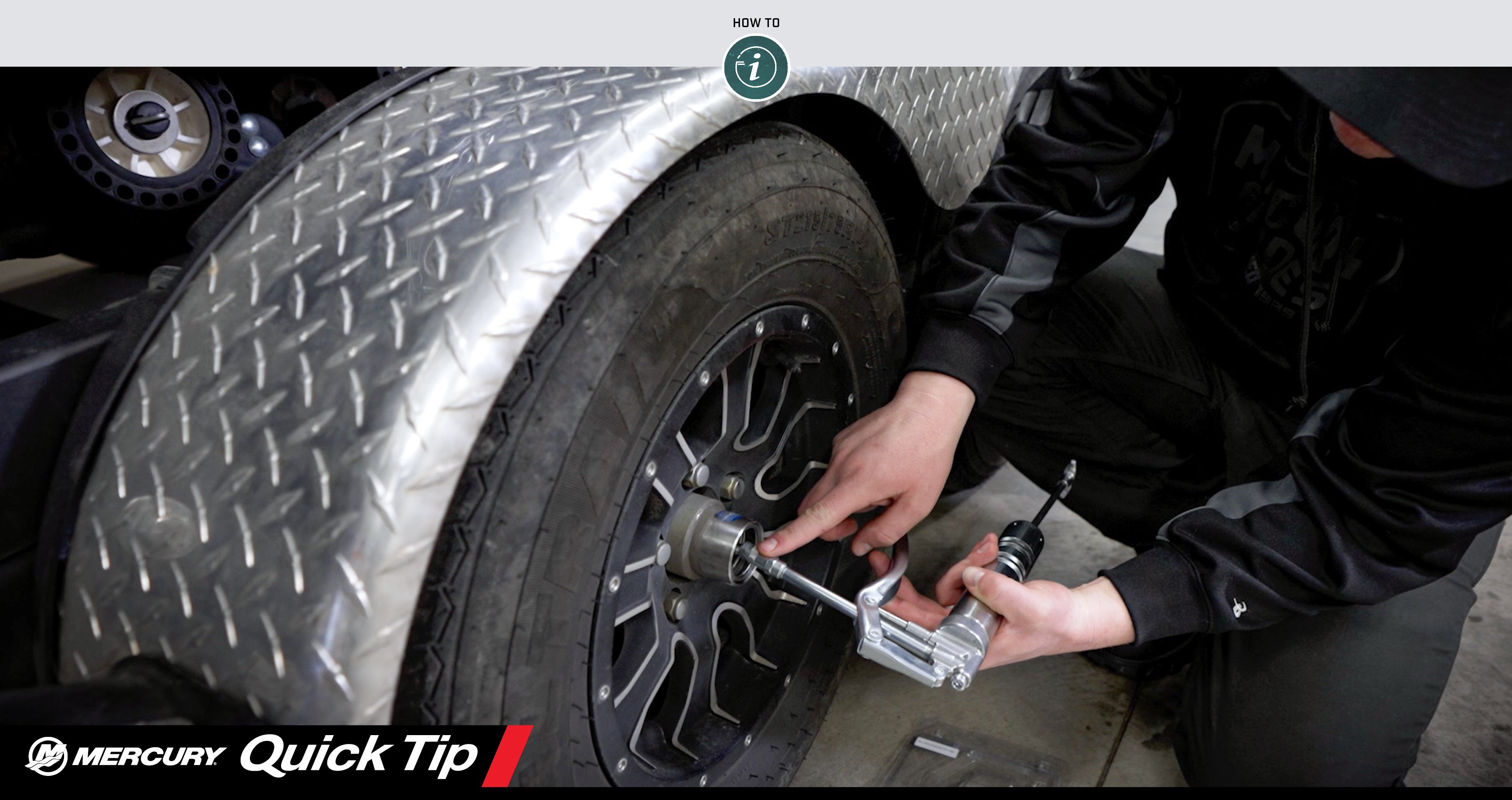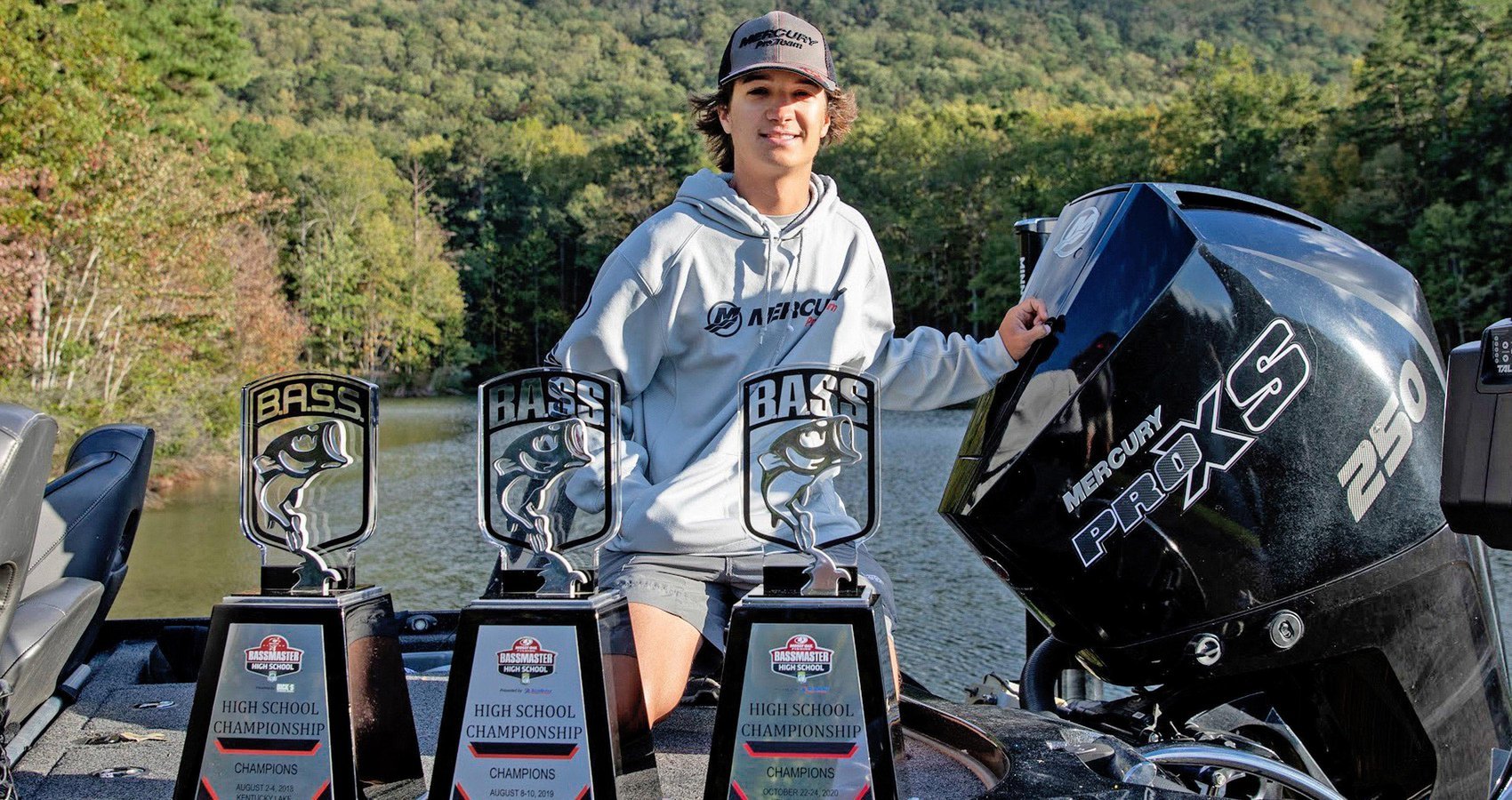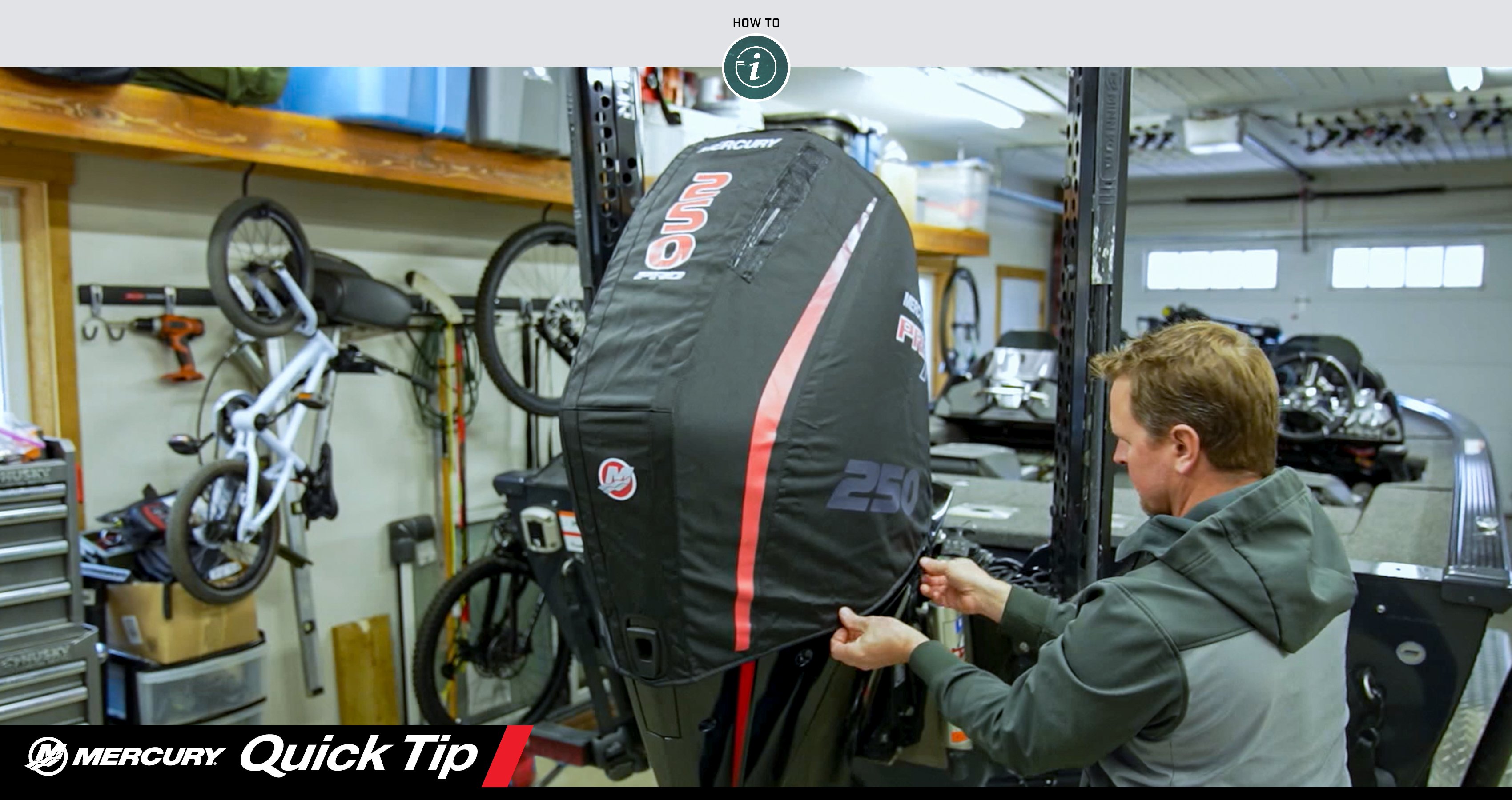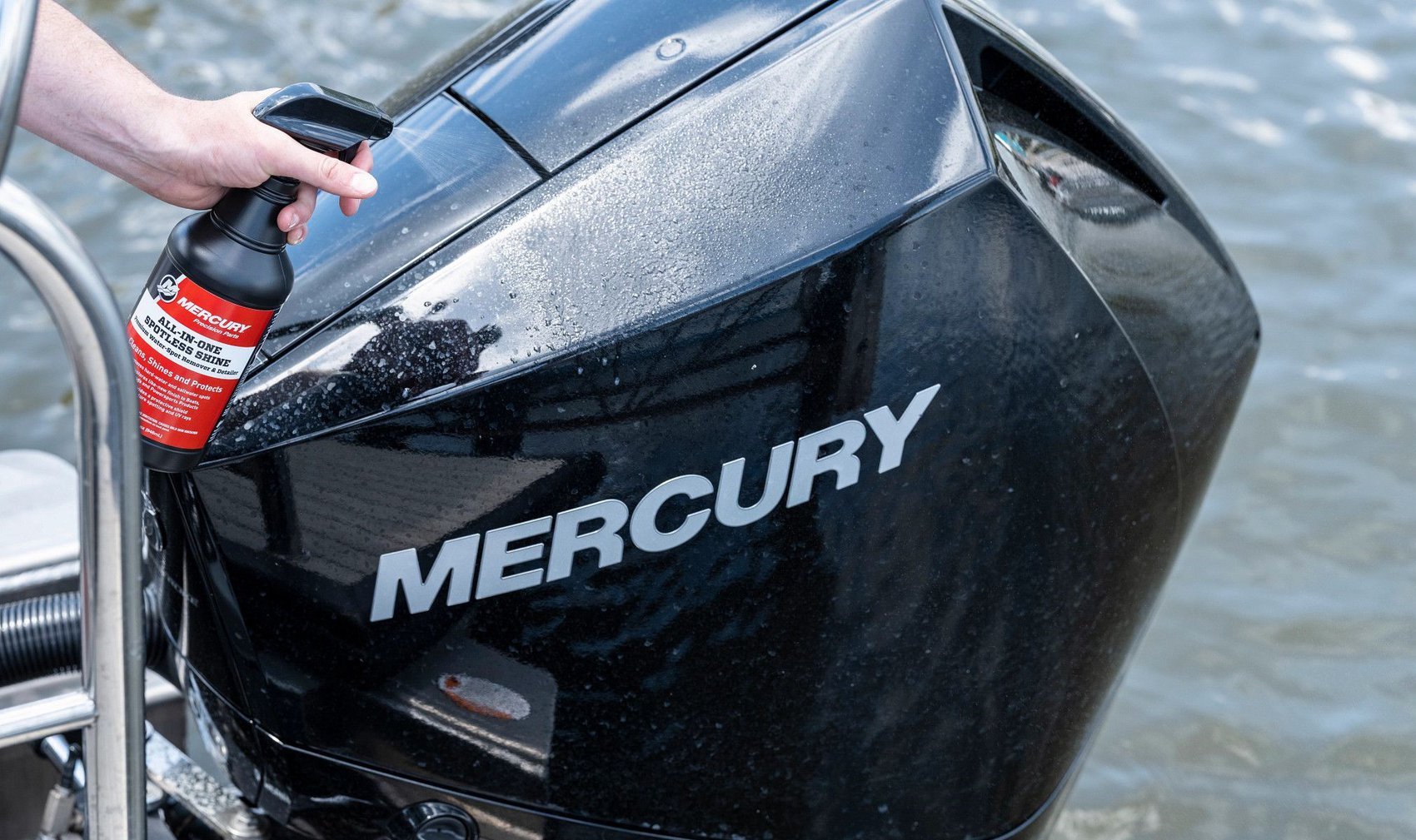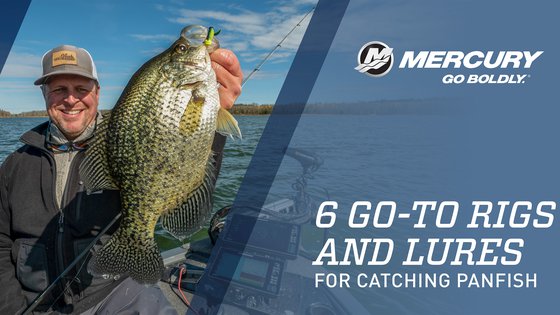Millions of anglers got their start fishing for various species of panfish, such as bluegills, crappie, white bass and yellow perch. It’s easy to understand why. Panfish are incredibly fun to catch, widely distributed across the continent and provide the kind of exciting, steady action that hooks beginners and keeps veteran anglers coming back. Plus, panfish are delicious. Just check out the Mercury Cook Your Catch series to see some of the wonderful ways to prepare panfish for the table.
All that said, as easy as catching panfish can be at times, the patterns do change, forcing anglers to adapt. Ryan DeChaine, one of our friends from Wired2Fish, relies on six go-to setups to catch big panfish and stay in the action throughout the year. With some simple adjustments, these setups can be adapted for a variety of depths, seasons, conditions and target species.
You can learn more about DeChaine’s six go-to rigs and lures by watching the video below.
Jigs
As simple as jigs look, they’re actually highly versatile. They can be cast and retrieved at any depth, dropped vertically or worked along bottom.
Jigs are typically combined with a soft-plastic lure as a trailer or some type of live bait – or a combination of both. Hair jigs, which have little tufts of fur, tinsel and fuzz tied on for extra attraction, can be fished with or without a trailer or live bait.
When choosing a panfish jig, size it appropriately for the species. Bluegills have smaller mouths than crappie, so target bluegills with a downsized 1/16- or 1/32-ounce jig with a small hook and a tiny soft-plastic trailer. For crappie and white bass, use a 1/8- to 1/4-ounce jig with bigger soft plastics or live minnows. Use heavier jigs for deeper water or faster presentations, and lighter jigs for fishing slowly or up shallow.
Jigs work everywhere, and every panfish angler should carry a few sizes, styles and colors along with an equal variety of soft plastics to pair with them.
Bobbers/Floats
Bobber fishing, or float fishing, is often considered “basic” fishing, but it can be as simple or highly technical as you want. For ultimate simplicity, a clip-on or fixed bobber attached to the line a foot or two above a hook or jig will catch plenty of fish. However, a slip bobber offers a tactical advantage because it can be set to suspend the lure or bait at any depth. It’s also easier to cast because the float isn’t fixed to the line.
The business end of any bobber rig can be a jighead or a bare hook with a soft plastic or live bait. There just needs to be enough weight to keep the bobber floating at about its mid-point. Add a piece of split shot if needed to “balance” the rig. Also be sure to match the bobber size to the presentation. A heavy jig will require a larger, more buoyant bobber, while a small bluegill jig pairs well with an acorn-sized float. In choppy water, larger bobbers or bobbers with tall, bright stems are easier to see.
Bobber fishing is great for targeting cover such as grass, rock piles, docks or wood. If it’s allowed in your state, you can pitch out a few bobbers to cover a larger area (check your local regulations).
Drop-Shots
This popular bass fishing rig excels for bottom-oriented panfish, too, particularly bluegills and other sunfish.
Just like for bass, the panfish version has a small hook tied to the line directly above a weight. The dropper line to the weight should generally be 6 to 12 inches long.
Rig a drop-shot with a small red worm, cricket or other live bait, or use a small soft plastic that mimics a worm or insect. Then just cast and let it sink to the bottom, and slowly inch it along.
Spinners
Spinners take advantage of the predatory nature of panfish by triggering bites with flashy, vibrating blades. They also allow you to cover a lot of water to locate fish on the move.
Spinners come in several styles, from the classic “safety-pin spinner” to in-lines and jigheads with small blades on their “chin.” They all work in a variety of situations. For fishing grass and wood, opt for a safety-pin spinner, whose wire arm helps deflect snags. Otherwise, they all catch fish in open water.
Spinners are a ton of fun to fish. Cast and wind them in fishy areas around grass, docks, wood or anywhere you find panfish. You’ll catch other species too and enjoy some really aggressive strikes.
Hard Baits
Hard baits such as jerkbaits, crankbaits and lipless crankbaits are best known for catching bass, walleyes, pike and some of the other larger freshwater predator species. While they’re great for those targets, they also work well for panfish. The key is to choose the appropriate size. Crappie and white bass can easily target most small hard baits commonly used for bass. For smaller-mouthed sunfish species such as bluegills, switch to “micro-sized” hard baits, which can be as small as just a few centimeters long.
Hard baits can be fished just about anywhere, whether cast or trolled. Best of all, they have a tendency to catch a bigger fish on average.
Gliding Jigs and Spoons
Originally popularized for ice fishing, gliding jigs – sometimes referred to as horizontal jigging spoons – have become incredibly popular for open-water fishing for all sorts of species. The key to fishing them is to rip them or jig them and let them fall with some slack in the line. That allows them to dart and glide, which helps trigger strikes. Most are available in very small sizes that are perfect for panfish.
Gliding jigs can be fished vertically or cast and ripped along bottom. They catch panfish in deep basins in fall, over deep brush and in many other scenarios.
Other jigging baits such as thin flutter spoons and heavier slab-style spoons can be fished in the same situations as a gliding jig. Try tipping spoons with a small soft plastic or a piece of live bait. They work great in open water and through the ice, especially for fishing vertically over brush piles.
Get After those Slabs
Targeting panfish is what you make it. If it’s a meal you’re after, that’s great. Just be sure to follow local regulations regarding creel limits, and harvest fish responsibly by keeping only what you need and letting the bigger trophy panfish go.
And if it’s exciting fishing you’re after, stocking up with the tackle outlined here is a great place to start.
To see more from Wired2Fish, follow them on Instagram or visit their website.
